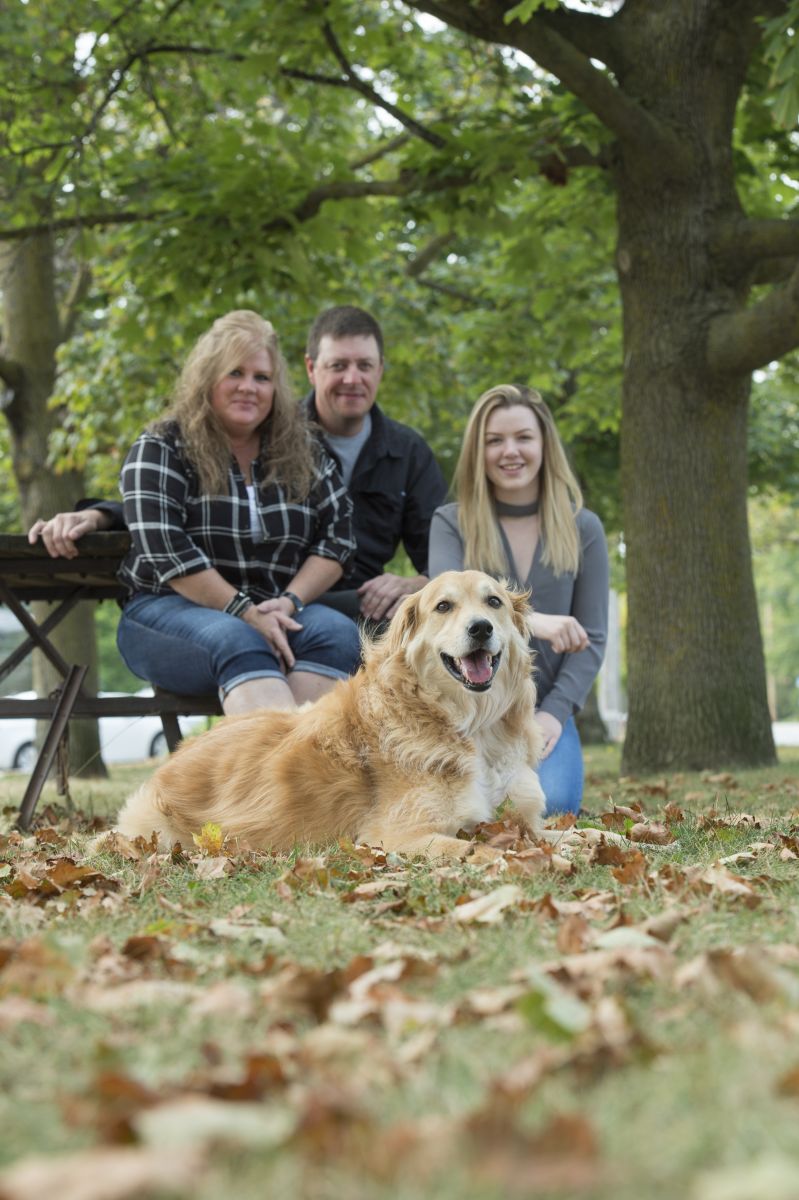 Getting a phone call that your pet has suffered a serious injury is a terrifying experience. You feel helpless. You can’t ask them where it hurts, know if you are alleviating their pain or understand what they are going through. That is exactly what happened to Jodie Mitchell when she was traveling with her daughter Shaylyn one day this past summer.
Getting a phone call that your pet has suffered a serious injury is a terrifying experience. You feel helpless. You can’t ask them where it hurts, know if you are alleviating their pain or understand what they are going through. That is exactly what happened to Jodie Mitchell when she was traveling with her daughter Shaylyn one day this past summer.
“Freddy had jumped off the bed and let out a painful yelp,” Rob, Jodie’s husband, recounts. “I didn’t know what had happened and I wasn’t sure how to help.” When Jodie and Shaylyn returned home, Freddy tried to meet them at the front door the way he always did. But that day was different: he was having trouble standing, and he couldn’t put weight on his front legs. Over a few short hours he slowly became paralyzed, and struggled to even take a few steps. “We rushed him to our veterinarian and they immediately referred us to the Ontario Veterinary College (OVC) for advanced emergency care,” Jodie remembers. “We jumped into our car. OVC is an hour away from our home, but at that point we were desperate to help him in any way we could.”
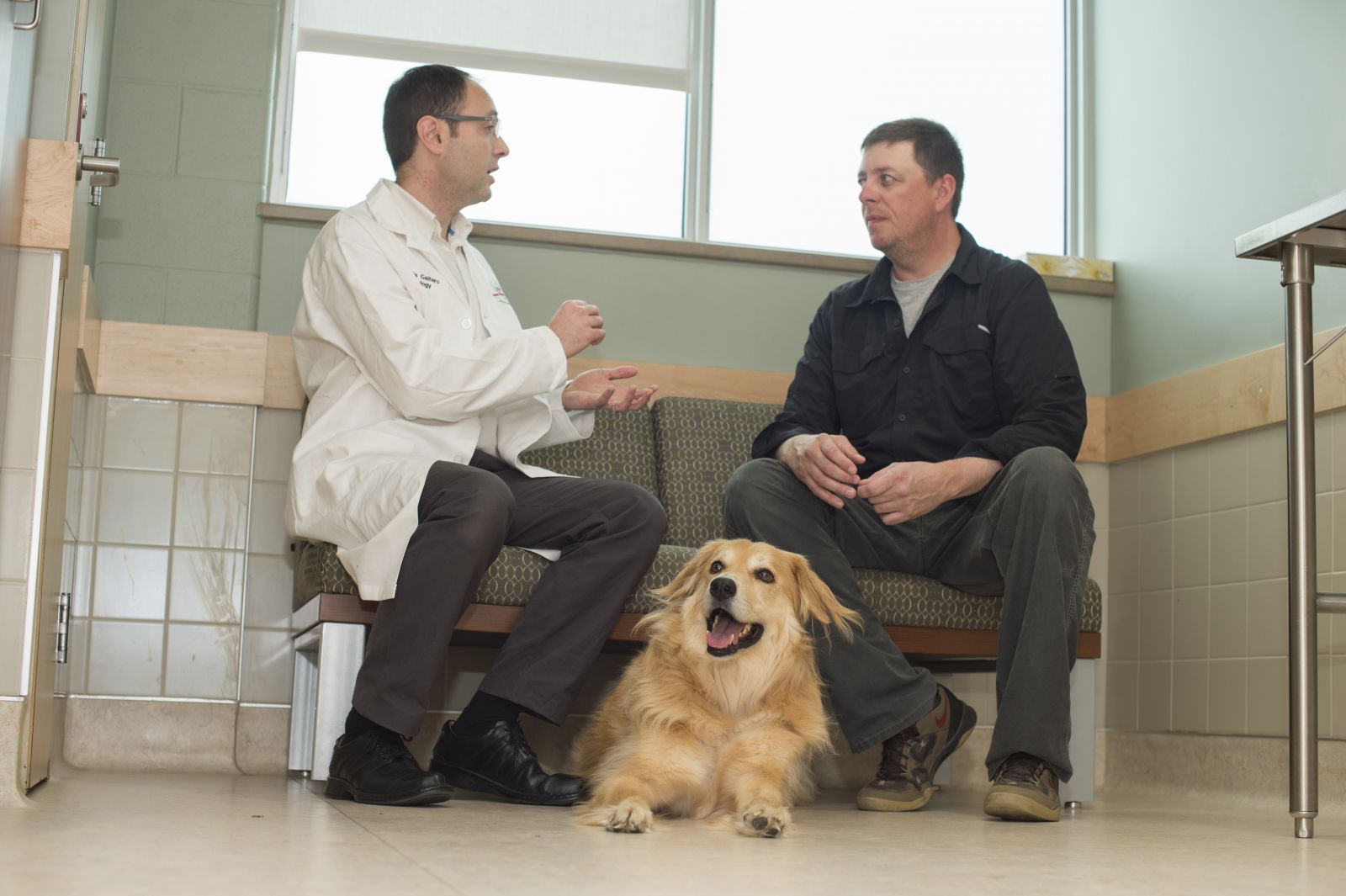 “From the moment the team at OVC greeted us in the parking lot with a stretcher, we knew our boy was in good hands,” Rob reflects.
“From the moment the team at OVC greeted us in the parking lot with a stretcher, we knew our boy was in good hands,” Rob reflects.
Immediately upon arrival Freddy was given a physical and neurological examination, which included an MRI scan, by board-certified OVC neurologist Dr. Luis Gaitero. Freddy was diagnosed with intervertebral disc herniation (IVDH), commonly referred to as a slipped disc, between the fourth and fifth cervical vertebrae in the dog’s neck. Intervertebral disc is a layer of roundish cartilage that separates adjacent vertebrae in the spine and plays a crucial role as shock absorbent in the spine.
“When a dog has a slipped disc, walking can be painful, uncoordinated and unbearable,” Gaitero explains.
Freddy needed immediate interventional surgery to help him regain his ability to walk normally again.
Dr. Gaitero and his surgical team performed spinal decompression on Freddy that very evening. The procedure involves making a small hole in the spine to find and remove the excess material created from the slip and alleviate the pressure on his spinal cord.
“While most dogs tend to do very well with early diagnosis and surgical treatment, success really depends on the severity of the clinical signs,” Dr. Gaitero says.
Freddy was hospitalized for five days following his surgery.
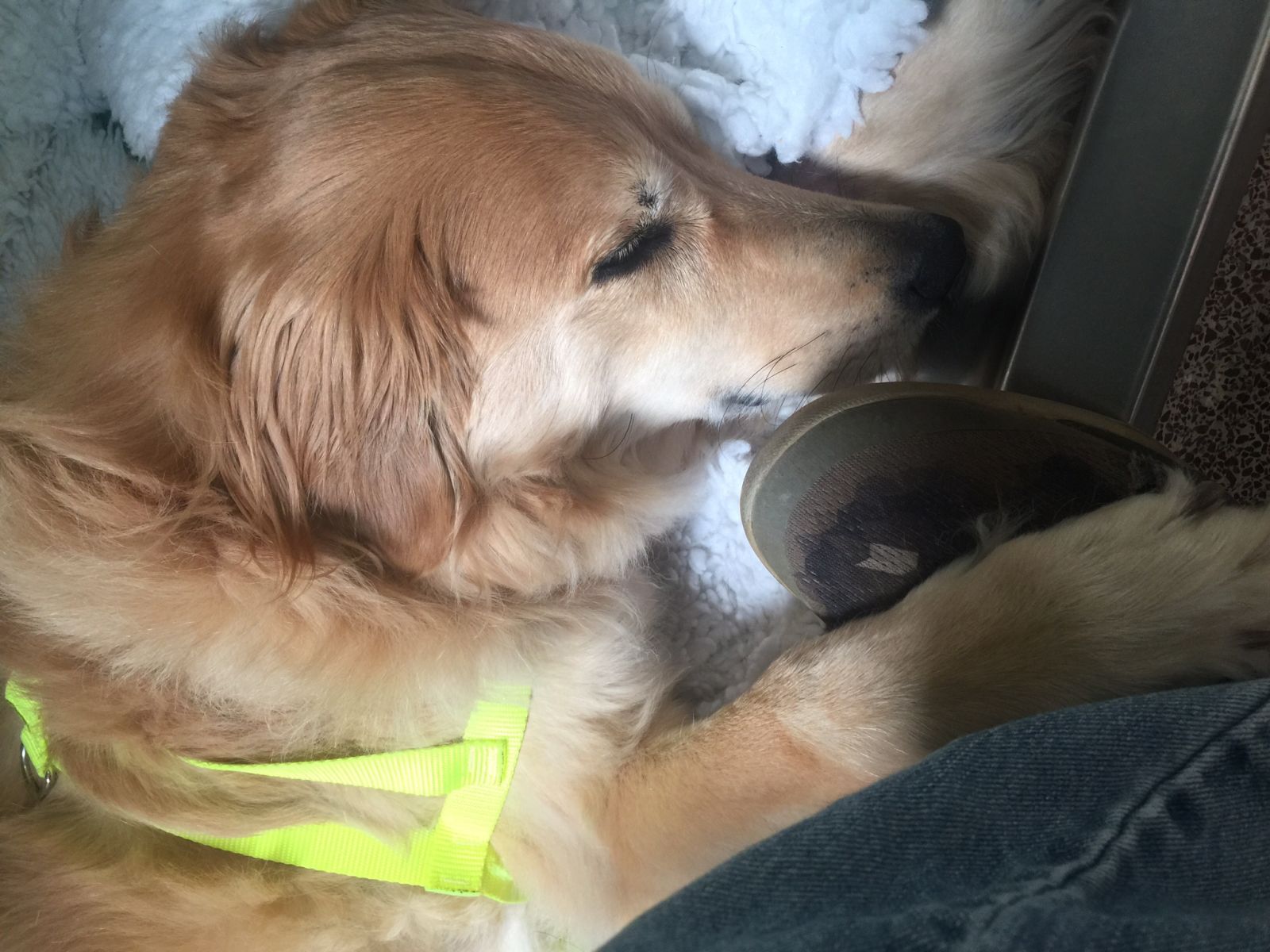
“With regular updates from OVC we felt comforted and reassured that the team at OVC was taking care of our dog when he needed it the most,” Rob adds.
There is currently no proven scientific research that identifies preventive treatment to decrease the chance of degeneration and keep intervertebral discs healthy, Dr. Gaitero explains. “However, preventing weight gain and limiting amounts of strenuous, high-impact exercise activity is a good strategy to decrease the chance that an already degenerated disc suddenly ruptures and herniates.”
This fall, the Mitchell family shared their story with thousands of University of Guelph supporters through OVC Pet Trust’s annual fundraising campaign.
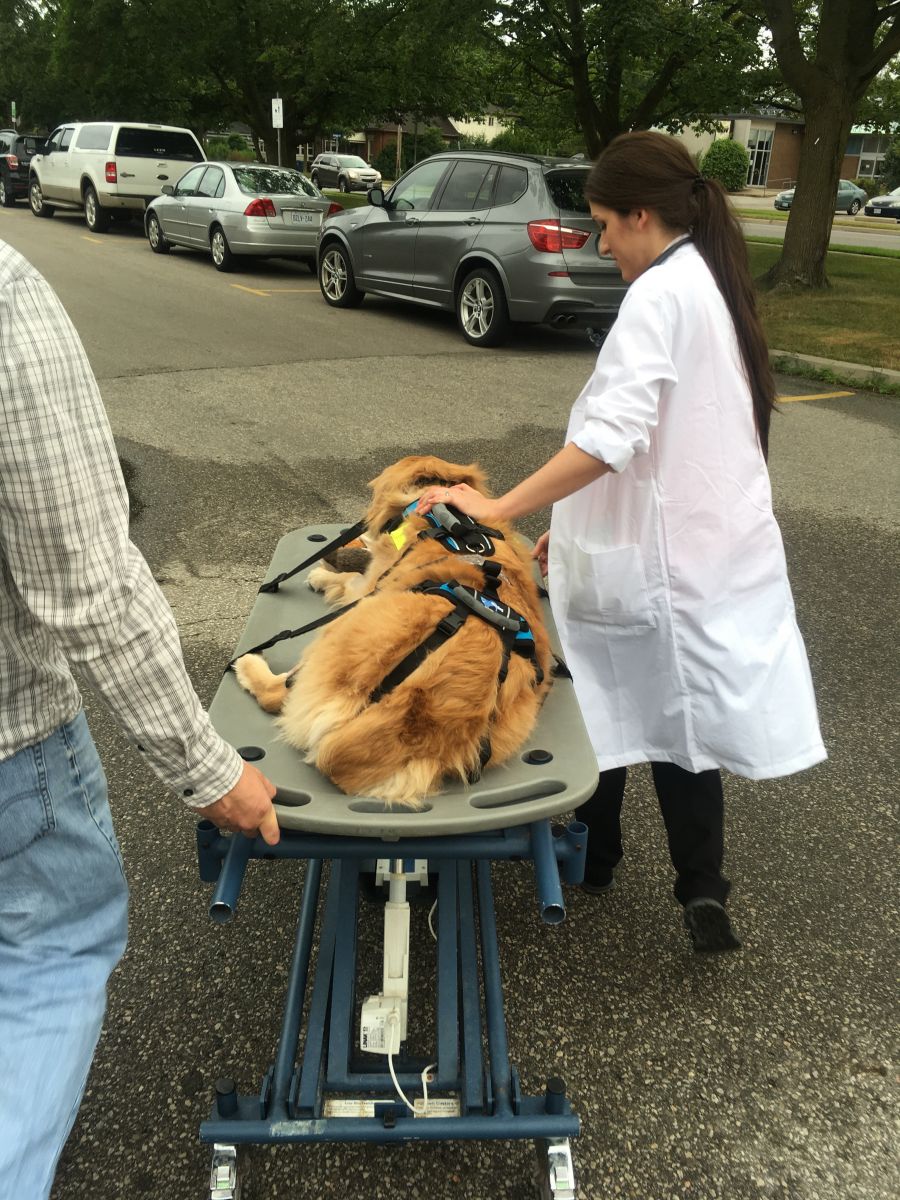
Shaylyn reinforces how much it meant to her family that their entire experience was very personal. “The people at OVC care about every single patient that comes through the door – as if the dog were their own family member. That was so special to me.”
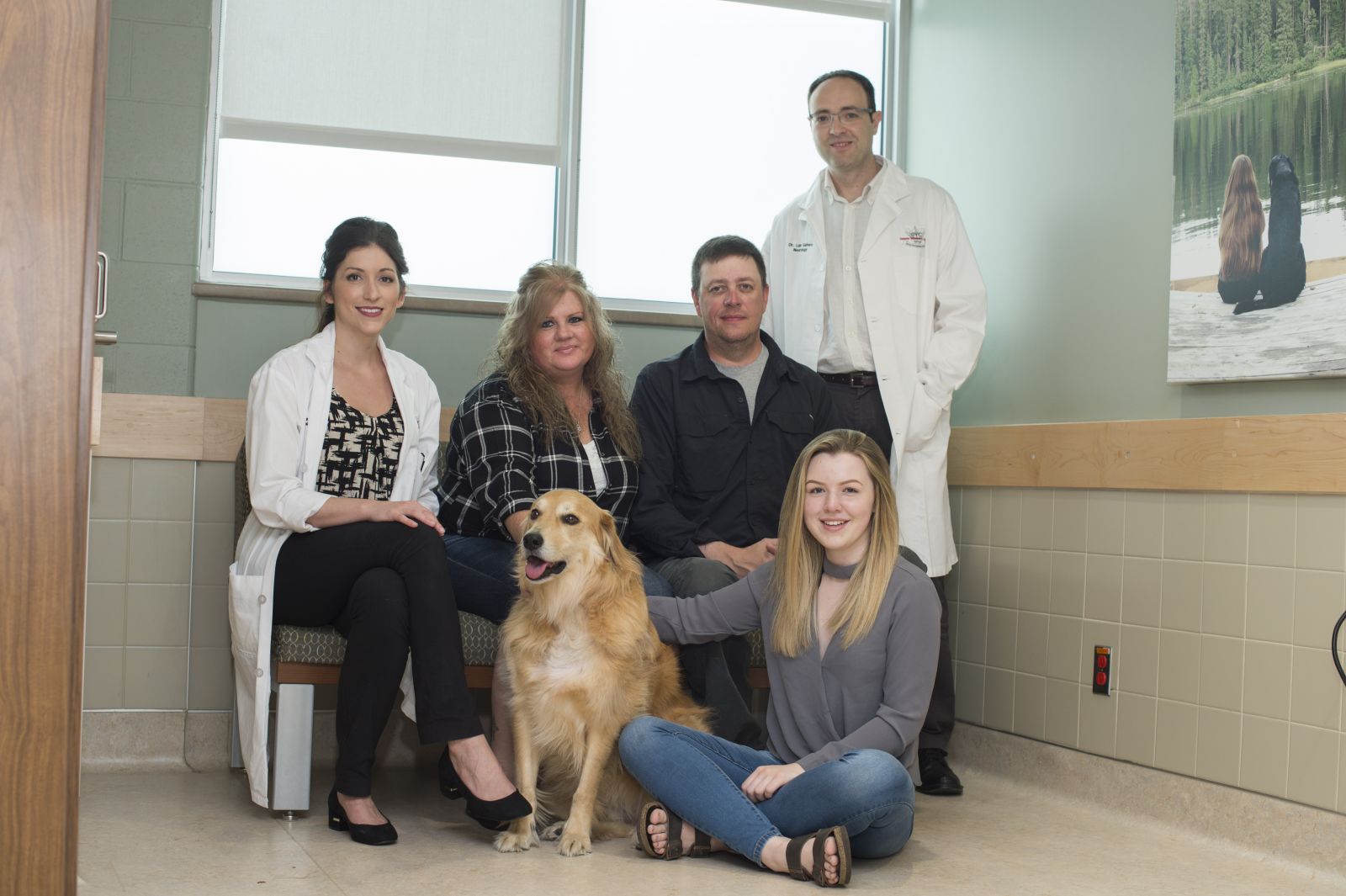 Freddy was greeted by the cats when he returned home with curiosity and lots of sniffing. His recovery has been slow but he has gradually started to walk, run and even jump and walk up the stairs again. Freddy continues to make progress following surgery and attends rehabilitation to help build his strength once a week.
Freddy was greeted by the cats when he returned home with curiosity and lots of sniffing. His recovery has been slow but he has gradually started to walk, run and even jump and walk up the stairs again. Freddy continues to make progress following surgery and attends rehabilitation to help build his strength once a week.
“It doesn’t get any better than OVC,” says Rob, “It means everything to our family that this incredible team saved our Freddy’s life.”

